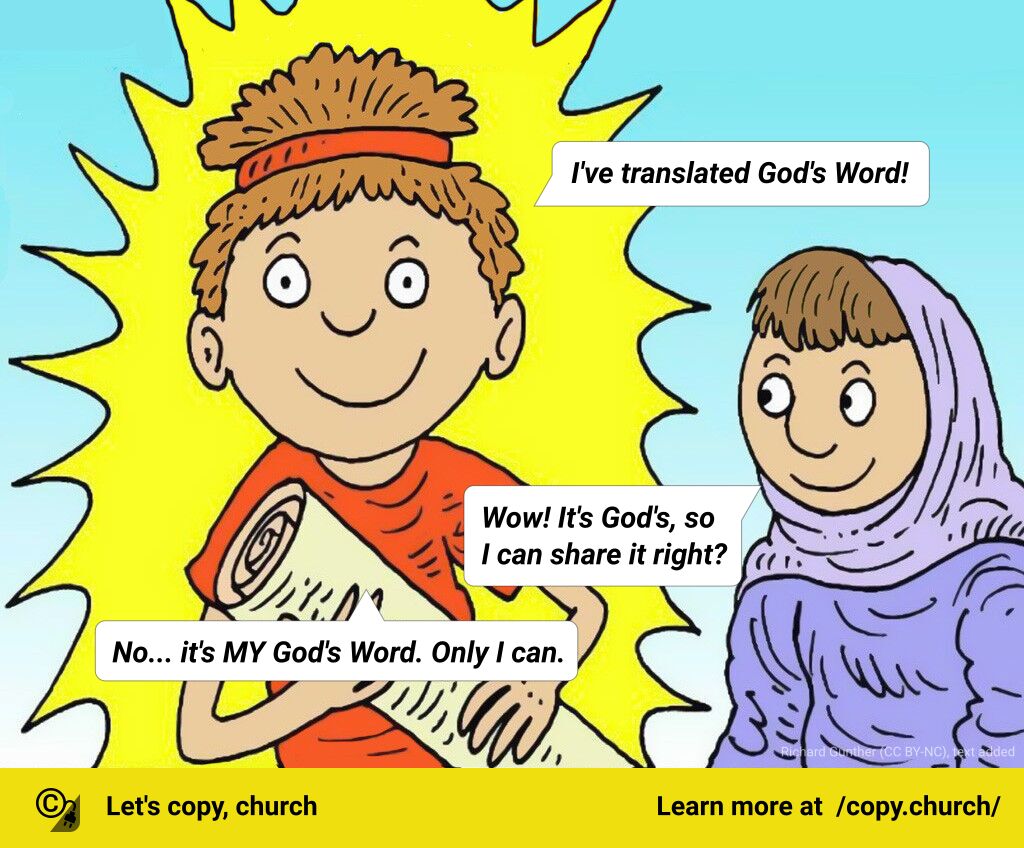Copyright prevents theft.
Copyright is an attempt to prevent "theft" of resources that are valuable because of the intellect behind them rather than their physical properties. In this regard, Christians could embrace copyright as a means of preventing theft. But they should not do so for ministry resources.
Ministers should not "own" resources they create
If you are employed in a modern company, anything you create is owned by the company and not by you. So if you create a resource while at work, it belongs to your employer for the benefit of the whole company. This was the same in Jesus' day too. If you were hired to work in a vineyard, the produce of that vineyard belongs to the vineyard owner and not to you. Workers would be granted some of the fruits their labor produced, but that provision comes from their employer and not their ownership of it (1 Cor 9:7).
So it must be asked, who are we ultimately employed by? Anyone serving God is subject to him and anything they create while in his service belongs to him, for the benefit of his kingdom.
Which of you whose servant comes in from plowing or shepherding in the field will say to him, ‘Come at once and sit down to eat’? Instead, won’t he tell him, ‘Prepare my meal and dress yourself to serve me while I eat and drink; and afterward you may eat and drink’? Does he thank the servant because he did what he was told? So you also, when you have done everything commanded of you, should say, ‘We are unworthy servants; we have only done our duty.’ ”
Rather than just doing our duty as servants of God, many are claiming the right to profit from what they produce despite being in the service of God while producing it. All ministry resources should instead be shared amongst God's servants for the benefit of his kingdom, as our master would want.
It is questionable whether copyright is a biblical ethic at all
Intellectual property is inherently different to physical property in that:
- It can be infinitely reproduced without directly affecting the original work
- The Bible does not directly address it
- For most of human history there was no copyright (until 1710), including during the Reformation
- The duration of copyright is arbitrary and subjective (50-70 years after the death of the owner)
These factors should prevent us from directly equating intellectual property theft with material theft to the same degree. Copyright is all about ensuring works can be monetized rather than just protecting the property of the original owner.
Permission should be granted upfront
Regardless of your views on copyright, this is an encouragement to grant permission to everyone to use your resources. Thus there is no issue of theft because everyone will have been given permission to use them anyway.
